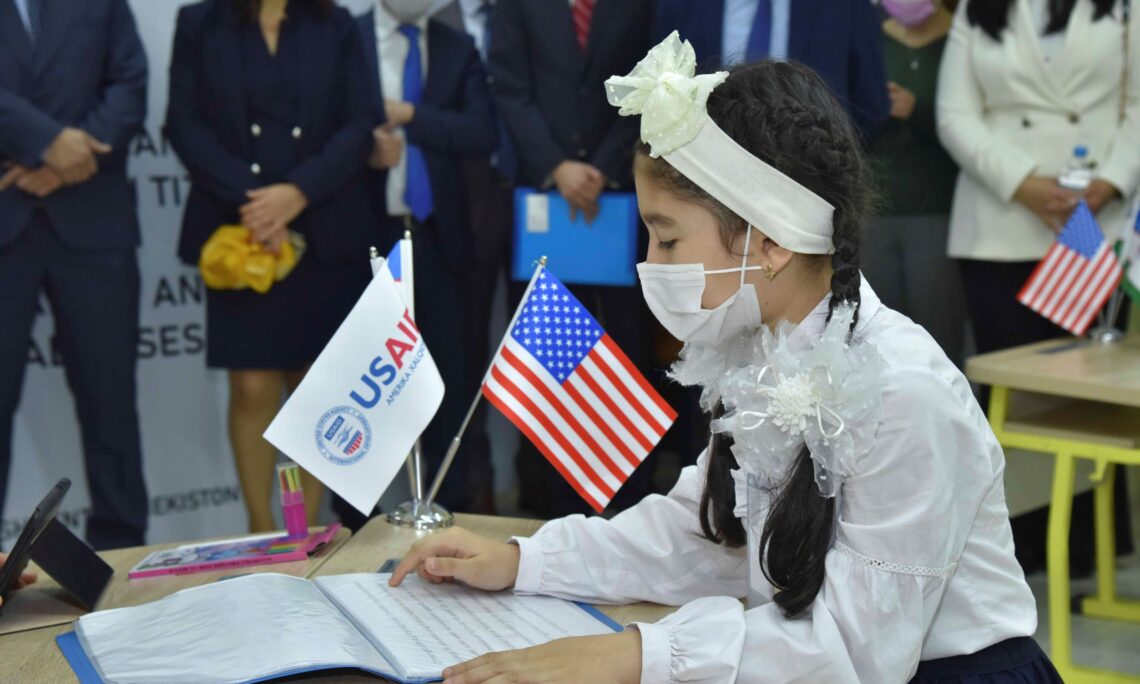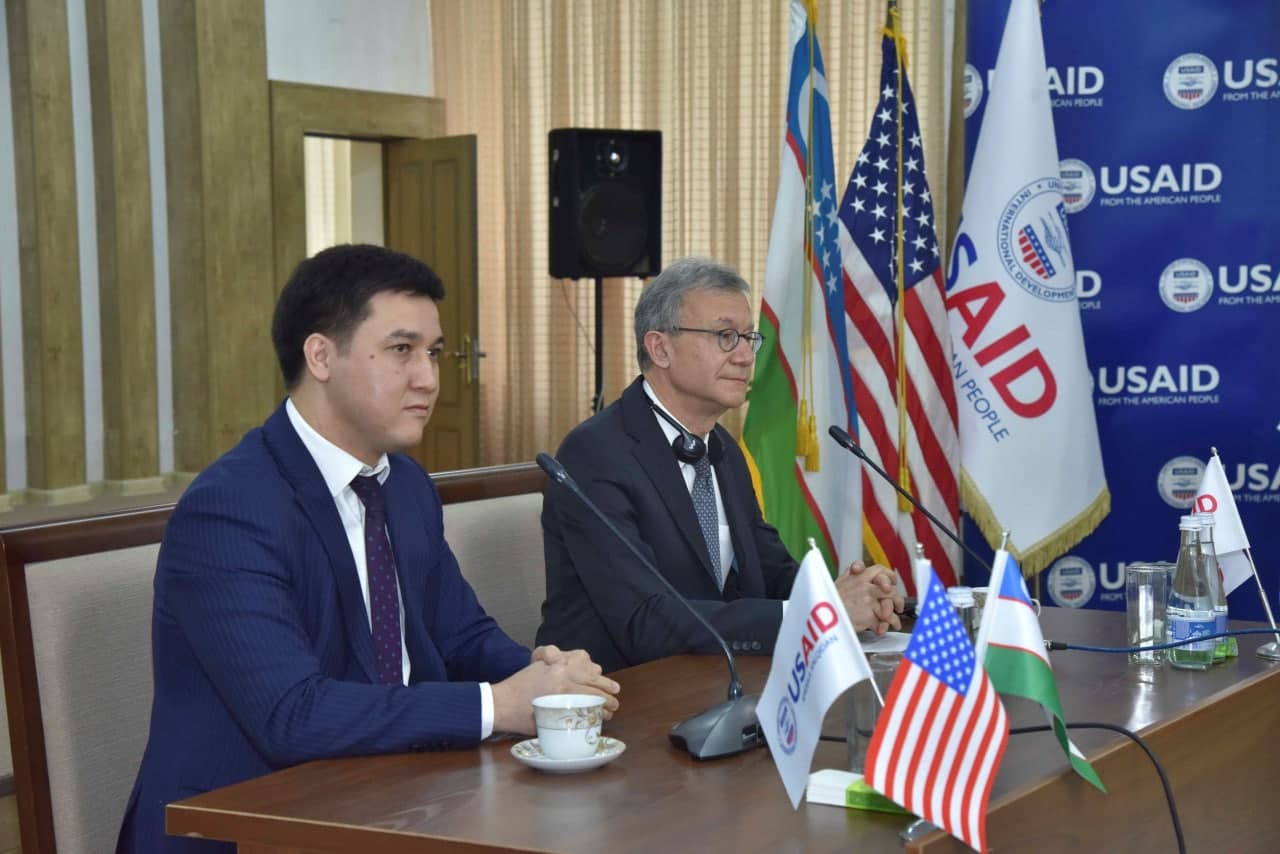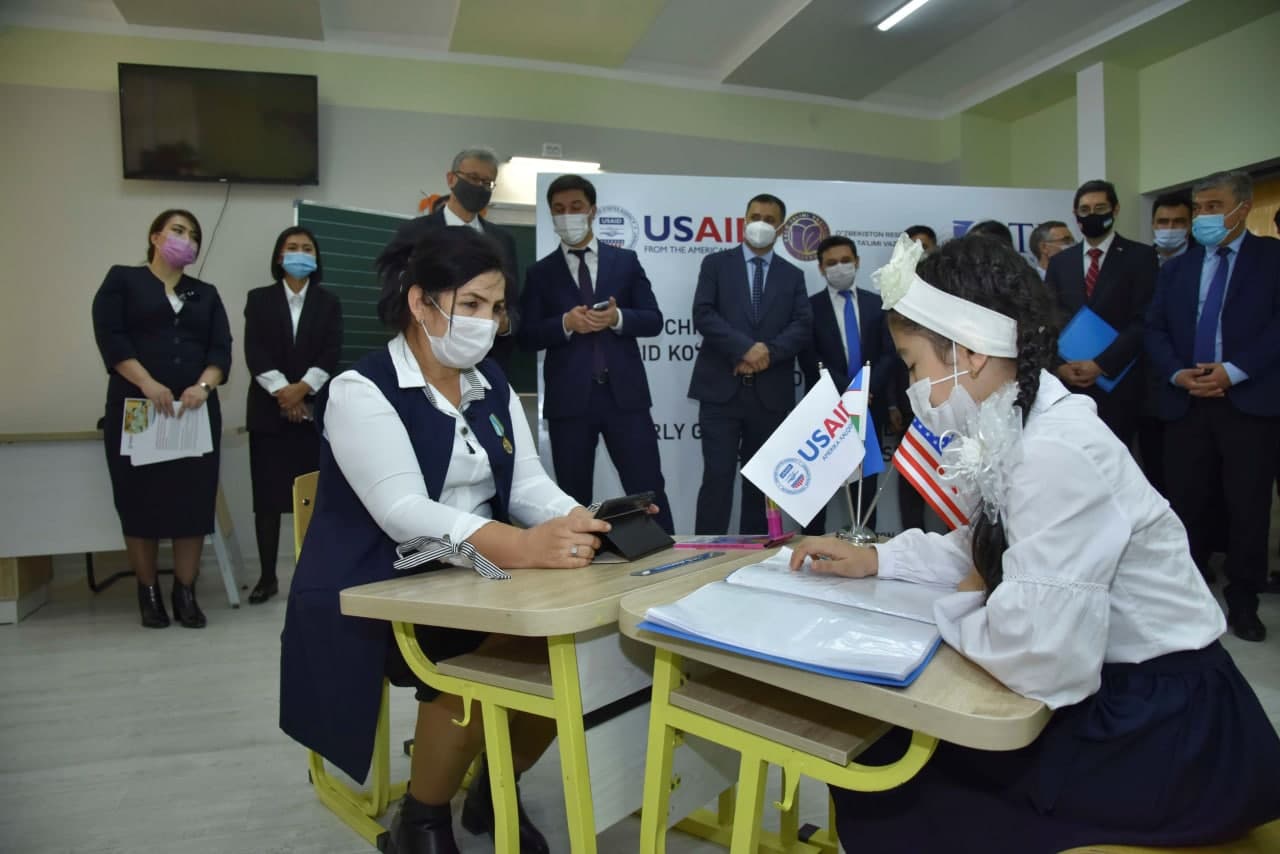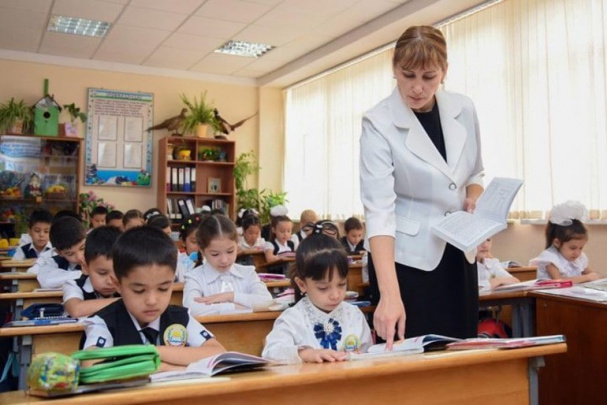USAID and Ministry of Public Education launch first national early grade reading and math assessments
The US Agency for International Development (USAID) jointly with the Ministry of Public Education of Uzbekistan is administering the National Early Grade Reading and Early Grade Mathematics Assessments (EGRA and EGMA) from November 15 to December 7, 2021.

Photo: U.S. Embassy in Tashkent
This collaboration between USAID and the ministry marks the first time ever that a national standardized assessment of this scale has been attempted in Uzbekistan, the US Embassy Tashkent said.
The EGRA and EGMA are scientifically based models for assessing the basic literacy and numeracy skills of students in the early grades of primary school. The EGRA and EGMA will assess over 11,000 students across 937 public schools in the country in Uzbek, Russian, Karakalpak, Kazakh, Tajik, Kyrgyz, and Turkmen languages, as well as in Uzbek as a Second Language. The concrete data collected on learning outcomes from these assessments will help the Ministry and its partners make better, evidence-based decisions on how to improve Uzbekistani students’ reading and math skills, which are the foundational skills needed to prepare individuals to succeed in their education and be active, productive members of society and the workforce.

Highlighting the importance of the assessments, the US Ambassador to Uzbekistan Daniel Rosenblum said: “We believe that investing in education is the most important thing that every country can do. Investing in the young generation is investing in our future. This project, which we are implementing together with the Ministry of Public Education, will help assess the reading and math skills of Grade 3 and 5 students throughout Uzbekistan. It will allow for the curriculum in these subjects to be improved and to make the right investment into the teaching of those subjects.”
The Deputy Minister of Public Education of Uzbekistan Rustam Karimjonov noted that “our mission is to bring the children success, our goal is to see them happy. This project is a vital step in moving forward with our mission by ensuring higher quality education at primary schools.”

To date, USAID has administered the EGRA and EGMA in over 40 countries, and the data collected has helped countries worldwide improve the foundational reading and math skills of their students.
Related News

19:57 / 29.04.2025
Government launches prestigious “Teacher of the Year” award with major prize

17:08 / 29.04.2025
Wage disparity in Uzbekistan: Education and healthcare workers still earn below national average

11:59 / 29.04.2025
Uzbekistan sees considerable surge in international student enrollment

16:34 / 24.04.2025



